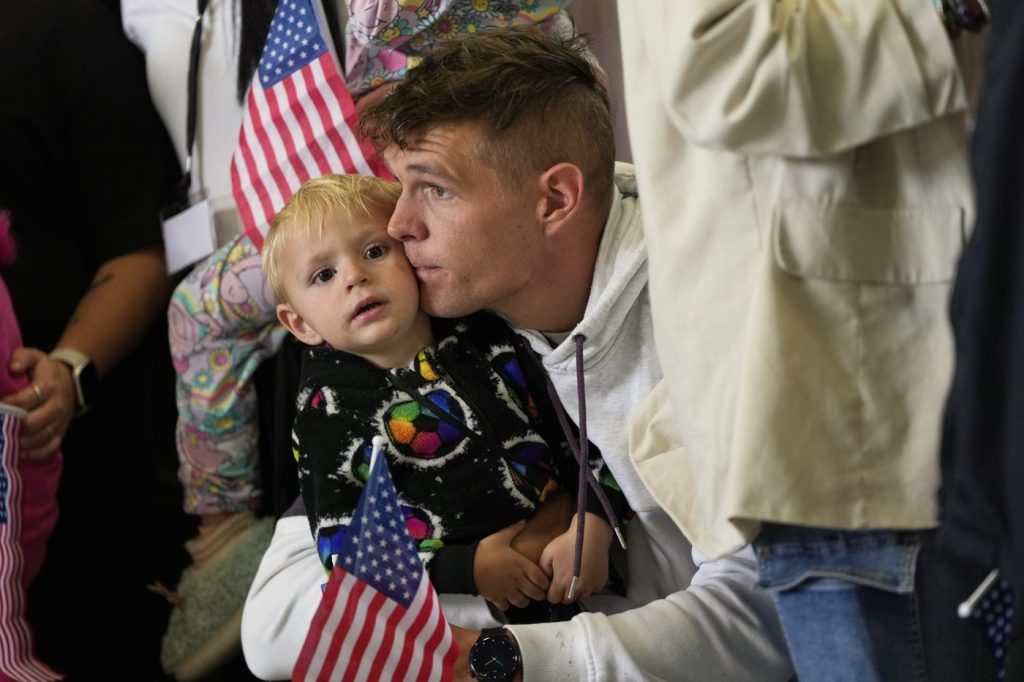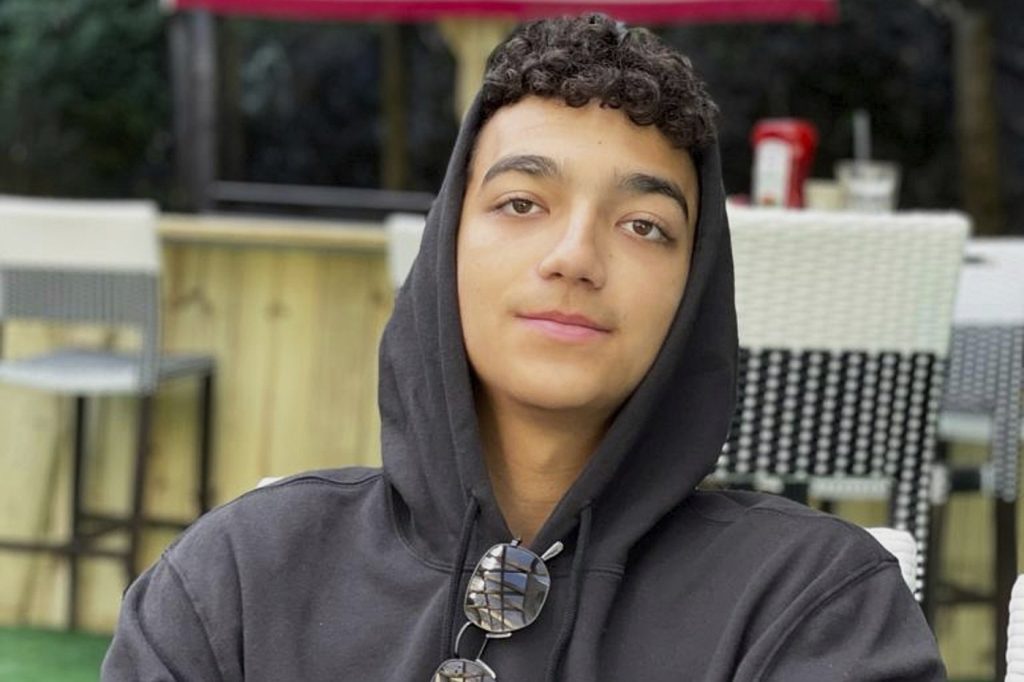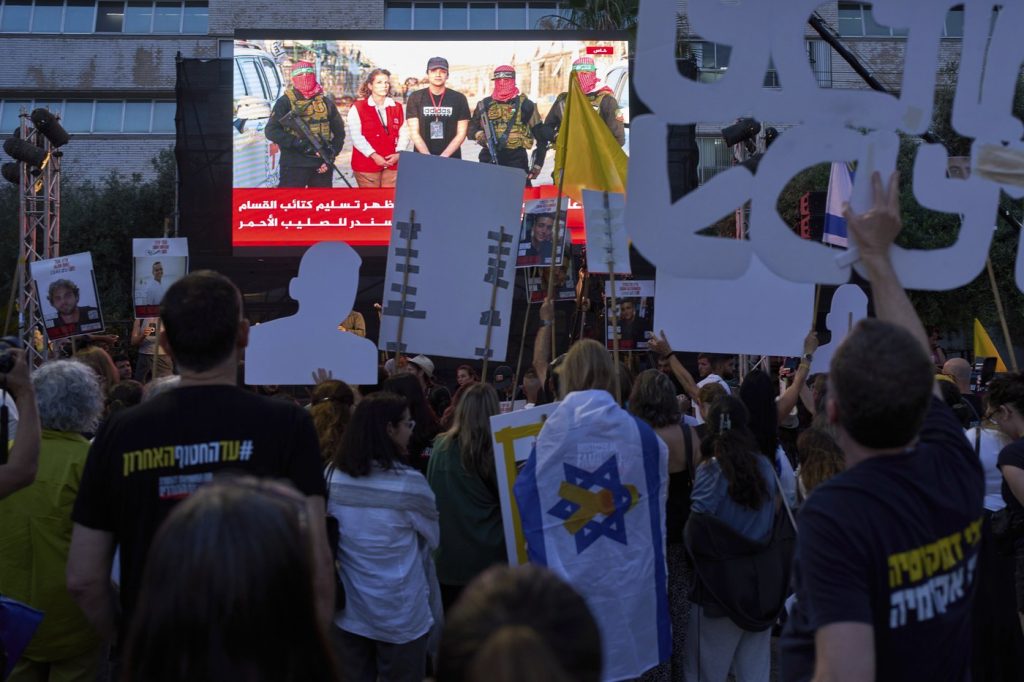DULLES, Virginia (AP) — The Trump administration recently welcomed a group of 59 white South Africans as refugees, emphasizing that they face discrimination and violence in their home country, a claim that the South African government has contested. This decision has raised questions among refugee advocates, who are puzzled as to why this group was prioritized for resettlement when the administration has suspended efforts to resettle individuals fleeing war and persecution after lengthy vetting processes.
Upon arrival at Dulles International Airport, many of the South Africans, including toddlers and young children, held small American flags as they were greeted by U.S. officials. The initial expectation was that 49 Afrikaners would arrive, but the State Department later confirmed the larger number of 59. Deputy Secretary of State Christopher Landau expressed a warm welcome, stating, “I want you all to know that you are really welcome here and that we respect what you have had to deal with these last few years.”
President Donald Trump has publicly asserted that the resettlement of these individuals is necessary due to “genocide” targeting white farmers in post-apartheid South Africa. He mentioned plans to address this issue in discussions with South African leaders in the coming week. This characterization has been staunchly rejected by South Africa's government, experts, and even groups like AfriForum, which argue that while farm attacks do occur, they are not indicative of systemic persecution against white Afrikaners.
During a business conference in Ivory Coast, South African President Cyril Ramaphosa recounted a phone conversation with Trump, insisting that disinformation led to the portrayal of white individuals as victims in South Africa. He countered claims of widespread persecution by stating that they stem from misconceptions about the nation’s efforts to rectify historical injustices stemming from apartheid, which enforced brutal racial segregation for nearly five decades until its end in 1994.
Afrikaners, a group of about 2.7 million individuals descended primarily from Dutch and French colonial settlers, comprise the largest white demographic in South Africa. Historically, they were leaders of the apartheid regime. While the country has made significant strides toward racial reconciliation, tensions between some Black political factions and Afrikaner groups persist. Critics of the Trump administration note that while claims of a “land expropriation” law promoting racial discrimination have been circulated, the South African government maintains that no property has actually been confiscated.
The issue of violent crime in South Africa is complex, and while white farmers have indeed faced violent attacks, the government asserts that these incidents are symptomatic of broader crime rates affecting all South Africans, regardless of racial background. As stated by South African Foreign Minister Ronald Lamola, there is no evidence to support claims of specific persecution targeting white farmers, who experience crime just like other groups within the nation.
Landau stated that the newly arrived refugees had faced severe risks in their homeland, describing incidents of home invasions and a perceived lack of governmental intervention. Each individual was required to meet stringent vetting criteria to be admitted, which supporters argue are among the most rigorous standards for anyone seeking to enter the United States. It is worth noting that since taking office, Trump has prioritized this small group for refuge while keeping out many others who have fled conflicts internationally. For instance, critics have highlighted that Afghans, the Rohingya from Burma, and Sudanese individuals deserving of protection remain in limbo.
Under the current U.S. directive, applicants must be South African citizens of Afrikaner descent or from other racial minorities, and must prove a realistic fear or history of persecution. Despite the challenges faced by many refugees globally, advocacy groups have questioned the administration's rationale for this specific admission, especially in light of the refugee resettlement program's previous bipartisan support, which Trump suspended upon his inauguration.
Traditionally, refugees are individuals who can demonstrate a reasonable fear of persecution based on race, religion, nationality, social group membership, or political beliefs. The U.S. refugee program, established by Congress in 1980, has faced legal battles since its halt under the Trump Administration, with organizations actively seeking its revival. The Episcopal Church’s migration service is among those refusing government directives to assist in resettling white South Africans due to its commitment to racial justice and reconciliation.












